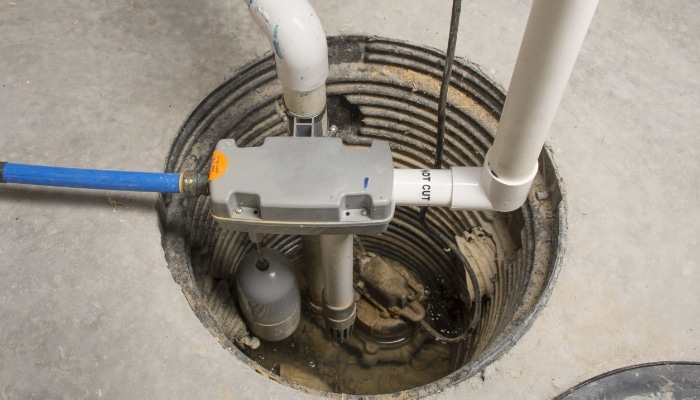Sump Pump & Sewage Ejector Pump Repair & Installation for Homes in Canton, GA
Living in Canton, GA, we often face unpredictable weather, from heavy summer storms to hurricane season. When these storms hit, flooding can occur quickly, and without the proper equipment, your home could suffer costly water damage. To prevent this, you need the right protection. A professionally installed sump pump or sewage ejector pump from My Georgia Plumber can safeguard your property.
What Is a Sump Pump, and Why Is It Essential for Your Home?
A sump pump serves as your first line of defense against basement flooding. Installed in a pit, it collects excess water when it begins to rise. Once the water reaches a certain level, the pump automatically activates, removing water from your home. By doing so, it helps keep your basement dry and shields your home from extensive water damage—something especially important during Canton’s frequent rainy seasons.
What Is a Sewage Ejector Pump?
In contrast to a sump pump, which removes groundwater, a sewage ejector pump manages wastewater from lower levels of your home, such as the basement. If you have a bathroom, laundry room, or kitchen located below the main sewer line, a sewage ejector pump becomes essential. This pump works by efficiently transporting wastewater up and out to the main sewer system, ensuring proper drainage and preventing potential backups.

Sump Pump FAQs
On average, a sump pump lasts around 6 to 8 years. However, this depends on factors such as usage, maintenance, and the quality of the pump. Regular inspections and timely repairs can help extend its lifespan.
Yes, a battery backup is highly recommended, especially in areas prone to power outages. During a storm, power failures can occur, and without a backup, your sump pump won’t function, leaving your home vulnerable to flooding.
To ensure optimal performance, it's recommended to have your sewage ejector pump inspected and serviced once a year. Regular maintenance can help identify potential issues early and keep your system running smoothly.
Benefits of Installing a Sump Pump and Sewage Ejector Pump
Both sump pumps and sewage ejector pumps are essential tools for protecting your home. Here are some of the key benefits:
Sump Pump Benefits:
- Controls Humidity: A sump pump keeps moisture levels down, preventing high humidity in your basement.
- Prevents Mold & Mildew: Lower humidity levels reduce the risk of mold and mildew growth, which can harm your health and home.
- Improves Indoor Air Quality: A drier environment means cleaner air for your family to breathe.
- Increases Property Value: Homes with reliable sump pumps are considered well-maintained, boosting your home’s value.
- Reduces Fire Risk: Water in the basement can cause electrical short circuits, increasing fire risk. A sump pump helps mitigate this danger by keeping water away from electrical components.
Sewage Ejector Pump Benefits:
- Proper Wastewater Disposal: A sewage ejector pump is critical for homes with lower-level plumbing, ensuring wastewater is safely pumped out to the main sewer line.
- Prevents Backups: With a working sewage ejector pump, you avoid dangerous and costly sewage backups, keeping your home clean and safe.
- Reliable Performance: These pumps work automatically, providing peace of mind that your home’s plumbing system is running smoothly, even in the event of a power outage with the right backup system.
How Our Installation Process Works
Whether you’re installing a sump pump or a sewage ejector pump, our process is seamless and efficient. For sump pumps, we first identify the best location in your basement or crawlspace. We’ll dig a basin, install the pump, and set up the necessary plumbing to direct water safely away from your home.
For sewage ejector pumps, we’ll assess your home’s plumbing layout and determine the best location for installation. The pump will be securely installed in a sealed pit, ensuring it can efficiently handle wastewater from your basement-level bathrooms, kitchens, or laundry rooms.
Expert Sump Pump & Sewage Ejector Pump Repair Services in Canton, GA
If your current sump pump or sewage ejector pump is experiencing issues, don’t delay in getting repairs. Our experienced team at My Georgia Plumber can diagnose and fix any problems, ensuring your pumps are fully functional before the next storm or plumbing issue arises.
Contact Us Today for Sump Pump & Sewage Ejector Pump Services in Canton
Make sure your home is protected from flooding and sewage backups. Whether you need a new sump pump, sewage ejector pump, or repairs for your existing system, My Georgia Plumber is ready to help.
Call us at 770-268-2331 or send us a message online to schedule your service today!











